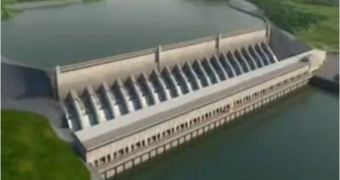A court decided that the indigenous communities have no rights to decide the fate of the Belo Monte dam, due to the fact that the construction is not located on their tribal land.
The Belo Monte dam is a proposed hydroelectric dam complex on the Xingu River in the state of Pará, Brazil. The planned installed capacity of the structure would be 11,233 megawatts (MW), which implies that it would become the second-largest hydroelectric dam complex in Brazil and the world's third-largest in installed capacity.
This decision triggered the anger of environmental groups which stated that the dam will significantly influence the wellbeing of the individuals who live in that area.
They questioned the lawfulness of the structure, taking into consideration that it is likely to be responsible for flooding 400,000 hectares of rainforest, making 10,000 people relocate. Also, apparently it has the power to block up to 80% of the Xingu river.
Sheyla Juruna, a leader of the affected community located near the site manifested her discontent regarding the decision made by Federal Judge Maria do Carmo Cardoso.
According to the leader, such initiatives are corrupted by financial interests and political pressure and harm the local communities, instead of guaranteeing their wellbeing.
In order to prove the lawfulness of her decision, the judge has affirmed that she based her verdict on environmental studies as well as a license which count as effective proof that the area and its inhabitants are not threatened by the Belo Monte dam.
It seems that the indigenous people didn't stand a chance while competing with the sponsors of the dam: more than a dozen major companies which spare no efforts when it comes to the controversial project.
One of the most important players which support this initiative are Vale, a powerful mining company and Bertin, a giant meat processing enterprise.
According to the officials from the International Rivers, the judge said that the inhabitants should feel “privileged” that they were able to express their opinion regarding this matter.
On the other hand, Ubiratan Cazetta, head of the Federal Public Prosecutor's office says that such a statement contradicts Brazil's constitution as well as the international human rights agreement, taking into consideration that consultation could never pass as a “privilege.”
What seems even more surprising is the fact that the controversial project was approved by the same court which has previously decided that the dam project will significantly affect the lives of the individuals living in Arara, Juruna and Xikrin Kayapó, who depend entirely on fishing and navigation.

 14 DAY TRIAL //
14 DAY TRIAL //